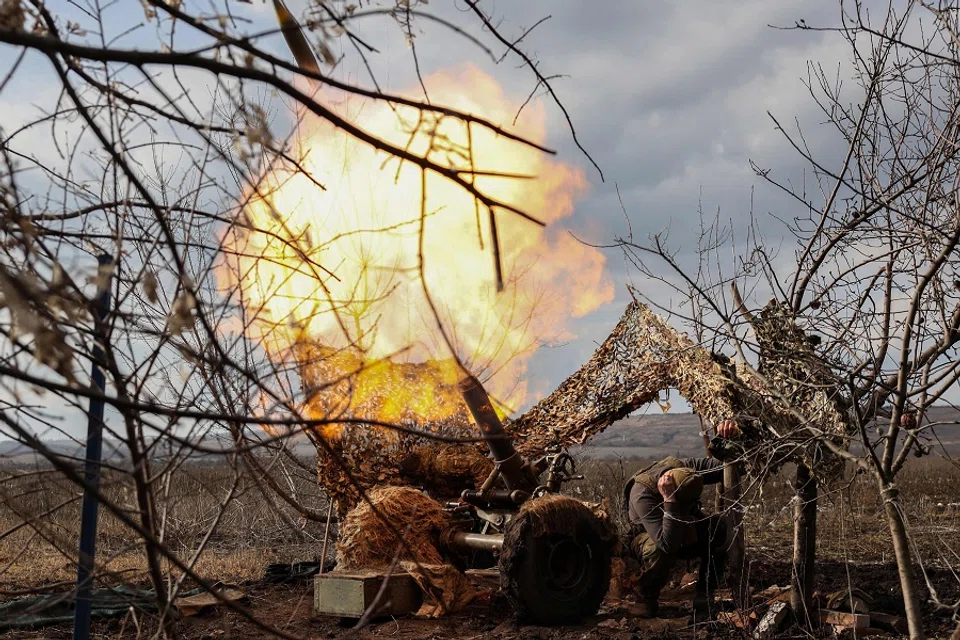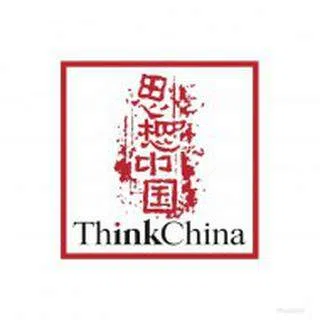US strategists are rethinking the way they see China and Russia
Researcher Wei Da observes that amid increasing US-China tensions and the ongoing Russia-Ukraine war, US strategists are rethinking the way they see China and Russia. This revised worldview keenly shapes their calculations of various flashpoints, not least the Ukraine war and the Taiwan issue.

Since the outbreak of the Russia-Ukraine war in February last year, there has been a marked change in the US: from the government to the military, think tanks and universities, everyone has been working hard at crafting international strategies, inspiring a grand vision and new thinking.
It was not too long ago that China had embarked on reform and opening up, the US-Soviet Union Cold War had ended, an economic globalisation wave had begun, and the mastermind of the September 11 attacks was killed. The global landscape was thought to be largely stable and calm. While authoritarian strongmen like Saddam Hussein, Muammar Gaddafi and North Korea's Kim family; Russia's clashes with neighbouring states; and terrorist organisations like the Islamic State of Iraq and the Levant were detestable and sometimes troublesome, spurring crackdowns and sanctions, these issues were largely intractable and unlikely to change the larger picture.
The global landscape generally seemed headed in a positive direction towards an open and integrated economy; a democratic society operating under the rule of law; advanced technology research and development and industrial chain cooperation; and multi-party communication and collaboration in defence and security to jointly safeguard peaceful development. Under such circumstances, strategic thinking and judgement seemed to take a back seat as priorities shifted to addressing specific international and social problems such as climate change, space exploration, intellectual property rights protection, the new feminist movement, global denuclearisation, information sovereignty and privacy protection, and so on.
... US strategists believed that confrontational and hostile strategic schemes against the US and the West should not be taken lightly.
A rising rivalry
But after the China-US trade war broke out in 2018, the US gradually realised that China-US rivalry had gone beyond just economic and trade and was extending towards conflict and confrontation on all fronts. As the China-US ideological divide widened, both sides were stuck in serious confrontation over geopolitical hotspots, military postures, technological competition, and the origin of the Covid-19 coronavirus.
Since China's strategic thinking and measures were geared towards achieving the "two centennial goals", US strategists believed that confrontational and hostile strategic schemes against the US and the West should not be taken lightly. Thus, the US government and major think tanks started a new round of strategic thinking and discussions of the China issue and challenge, with other relevant departments and organisations enthusiastically joining in.

Russia's invasion of Ukraine a year ago came as a rude awakening to US strategists because Russia turned an East-West cold war into a large-scale hot war. This led US strategic thinking, perceptions and opinions to undergo a series of major adjustments, enhancements and innovations.
... the key to solving the Russia issue lies in how the transformative reform of this civilisation can take place.
US changing its strategic parameters
I will just elaborate here on the US's current strategic thinking on two hotspots: Ukraine and Taiwan.
The US attitude and strategy towards Russia have always been of two schools of thought: one, breaking away from Russia. This side believes that it would be difficult for Russia to integrate into modern civilisation in its current state. Besides, since its national strategy is extremely aggressive, it requires a dramatic repositioning and a fresh start. Two, coexisting with Russia. This side advocates coexisting with Russia in its current state to develop a positive and non-confrontational model of peace and stability in Eurasia through economic and trade cooperation and other means.
Russian President Vladimir Putin and Russia's aggression in Ukraine has proven that Russia is indeed a threat, and is giving an edge to the side that advocates breaking away from Russia. It follows that the key to solving the Russia issue lies in how the transformative reform of this civilisation can take place. This would also usher in Eurasia's new era in the development of modern civilisations.

American think tanks believe that the three major laws of innovation in the tech industry have some bearing on the transformation of the modern Russian civilisation. Firstly, technological breakthroughs and innovations are almost always brought about by emerging industries and not existing tech giants. This is a brutal truth, typical of the new overthrowing the old. Taking the latest creation of ChatGPT as an example, the chatbot was created by a new and relatively unknown tech enterprise, instead of search engine giants such as Google, which has clearly fallen behind.
Secondly, major technological breakthroughs and innovations have never come from government departments, state-owned enterprises (SOEs) or military units. While government policies can encourage innovations and SOEs and military units can advance the popularisation of new technologies, they can hardly come up with original innovations. Masterful innovation breakthroughs have always been created by flexible and uninhibited entrepreneurs, academic debates and private enterprises.
Thirdly, from the perspective of talent and resources, tech elites often come from top-tier enterprises and schools, and later moved on to carve a name for themselves in innovation. At the same time, existing mainstream enterprises often buy out innovative companies and technologies through market acquisitions and other means to absorb new innovations into their own company.
In Russia's case, the chances that its current system will correct its mistakes and transcend itself have proven to be slim.
Russia's deconstruction and reconstruction
Indeed, the pattern is that the new often overthrows the old, and that sustainable growth is dependent on the constant introduction of innovative elements. In terms of national progress and civilisational leaps, these laws mean that existing systems can only either constantly reform, open up and strengthen democracy and freedom, or simply reposition and reinvent themselves to effectively advance the modernisation of traditional countries. Otherwise, they would be eliminated and defeated.
In Russia's case, the chances that its current system will correct its mistakes and transcend itself have proven to be slim. As a result, a brighter future can only be achieved through the deconstruction and reorganisation of its core institutions, and the emergence of a new generation of Russian politicians with strong governance capabilities and a modern civilisation perception.

Now, Putin's overambition and excessive aggression has exposed a major loophole: while the desired outcome was to solve the Ukraine issue, it has instead provided a rare window of opportunity to hasten the resolution of the Russia issue. Even if the Russia-Ukraine war is unable to solve the Russia issue in one fell swoop, the broad goals and main direction of doing so have become quite clear.
... if China attacks Taiwan, whether this would be a reemerging power's forcible grab or a desperate move to avert a crisis arising from the unsustainability of its political and economic path?
Butterfly effect of the Taiwan issue
The Taiwan issue is very different from the Ukraine issue. The US is more anxious over the situation in the Taiwan Strait, and is constantly staying focused and coming up with new strategic thinking and viewpoints. The biggest characteristic of the Taiwan issue is that if conflict breaks out in the Taiwan Strait, it would be difficult for countries such as the US and Japan to stay out of the war and not clash with mainland Chinese troops.
As soon as major powers engage in war, it would be difficult to control the scale, means and intensity of the confrontation. Thus, should war happen, it would have a butterfly effect. If that happens, the significance of Taiwan's geopolitical importance, the security of its global high-end industrial chains and the defence of freedom and democracy would extend far beyond Taiwan's interests and security alone.
The US's strategic thinking on the Taiwan issue is currently going in two directions:: one, can war in the Taiwan Strait be avoided? Two, if war happens, how can the US and its allies ensure a successful defence of Taiwan?
In terms of the first line of thought, a major debate among American strategists is to wonder if China attacks Taiwan, whether this would be a reemerging power's forcible grab or a desperate move to avert a crisis arising from the unsustainability of its political and economic path?

It is generally agreed that the latter proposition is more likely. Because if it was the first scenario, a true rising power would be unlikely to clash fundamentally with the values and order of modern civilisation or resort to using force over Taiwan. Instead, both sides of the Taiwan Strait would likely more closely interact and integrate. Hence, the former possibility can be ruled out.
In the second scenario, American strategists generally believe that this is more probable if the mainland misjudges the situation. To prevent this from happening, the US is striving to keep the channels for high-level dialogues and communications between China and the US open, while enhancing the political and economic alliance and military security in response to the Taiwan Strait crisis to make ample preparations in advance.
In the same way that Putin once described that the annexation of Ukraine would be a victory for the Russian state and nation, some Chinese have also described the invasion and occupation of Taiwan as a mark of China's victory and re-emergence. How accurate and true Putin's claim turned out to be has been amply shown by history over the past year. American strategists are thus convinced that if they can dispel certain unrealistic thinking and expectations the mainland has of the Taiwan Strait issue in advance, the outbreak of war in the Taiwan Strait may be prevented or deterred.
This article was first published in Lianhe Zaobao as "美战略界对乌台的思维与谋划".



![[Photos] Fact versus fiction: The portrayal of WWII anti-Japanese martyrs in Taiwan](https://cassette.sphdigital.com.sg/image/thinkchina/3494f8bd481870f7c65b881fd21a3fd733f573f23232376e39c532a2c7593cbc)

